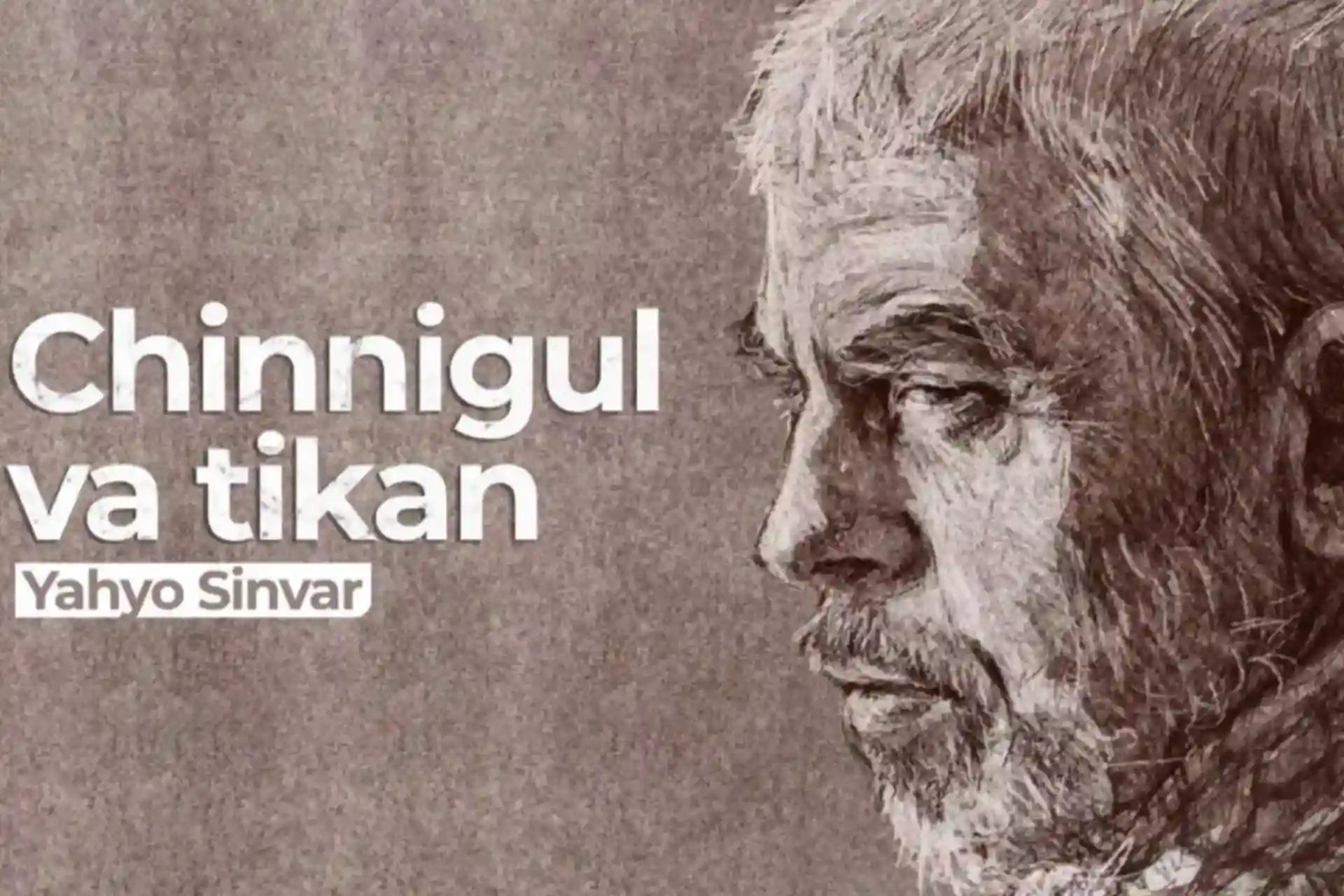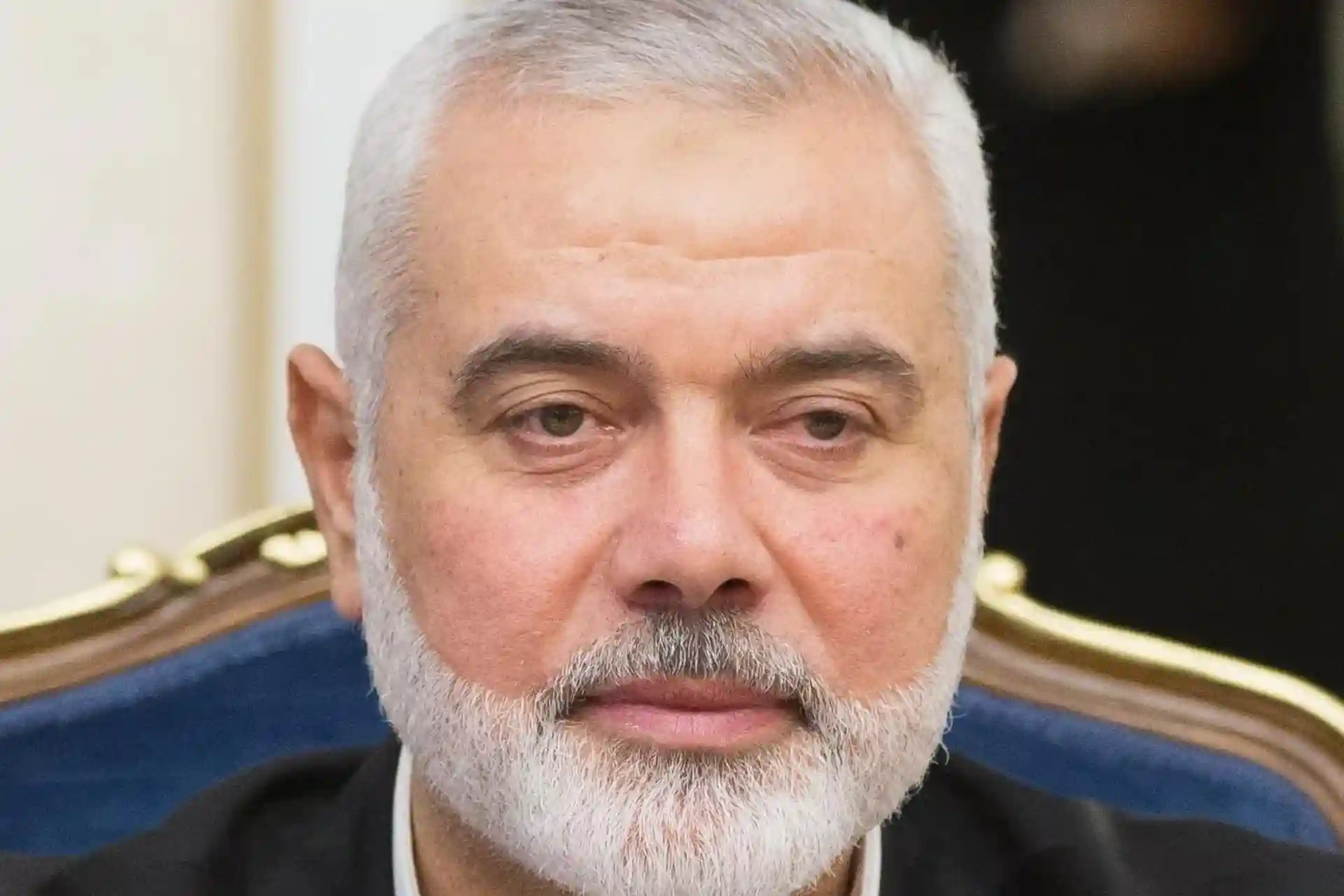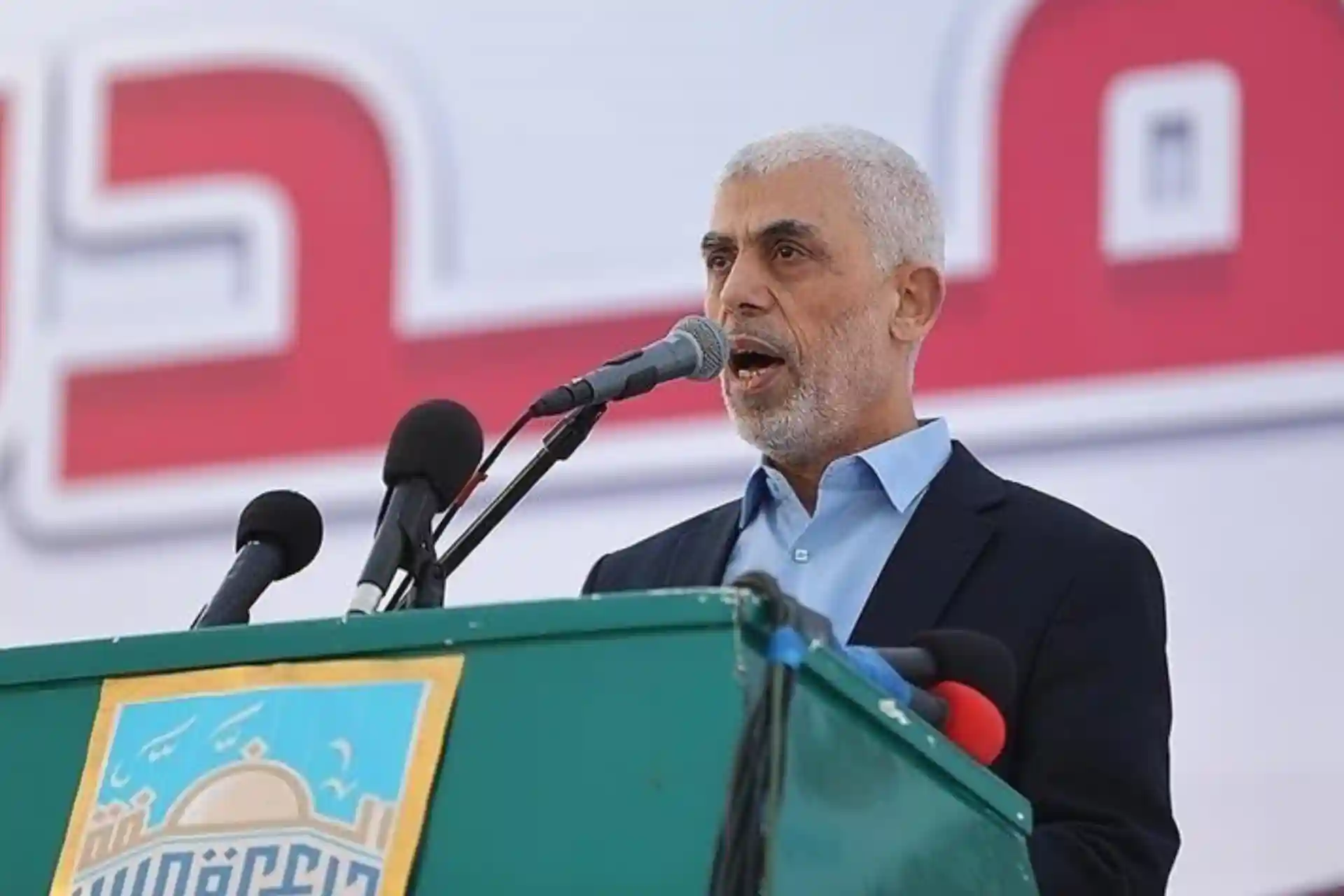19.11.2024 21:30
2852
"Carnation and thorn" - Yahya Sinvar (short story, part seven)
One day, we were standing in a line at school, and suddenly we heard shouts. Then the people joined together and said, "We sacrifice our lives and our blood to you, O Palestine!" voices were heard saying. People from our school came out and joined the gang with people from other schools. Everyone was beaming with joy. Because that day was lucky, and the Palestinian devotees on the East Bank of the Jordan River succeeded in attacking the invaders. After that, everyone went to their homes while chanting these sentences in the tented streets of the camp. As if the bowed heads after 1967, which people called the "Unfortunate War", are rising again, everyone began to feel a sense of holiness. Since then, it was the first battle in which the Israeli army was defeated. In the Karomat region of the East Bank, the devotees organized a military force on the river bank and carried out several operations on the border.
After that day's time, as usual, my grandfather and I went out to the place where people were sitting behind our yard. People were very happy. There was talk about the Palestinian uprising, about the party "Liberation of the Motherland" ("Fath"). It was clear as day that the Fatah movement was taking over the leadership of the Liberation of the Motherland movement and the anti-occupationist militant group. At that time, I heard someone say:
"Master, "the land is plowed by its own calves" (Palestinian folk proverb). Until now, we relied on Arab troops and were defeated. Now we are winning for the first time, despite the fact that our strength and weapons are weak. Repentance!'
All those who listened to him nodded their heads in agreement. In the following days, the activities of the devotees in the West Bank and Gaza gained momentum. My mother used to say: "The death of some men resurrects some men." Similarly, the sacrifices in the Karomat region revived many men. It seems that the intelligence of the invaders assumed that the source of operations in Gaza would start from the camp on the beach, so they imposed a stricter quarantine on our camp. This quarantine lasted almost a month.
In the city tens of meters away from us, life continued in its natural state. The call to prayer for the afternoon prayer could be heard from the Abbas mosque on the main street, Umar Mukhtar street. Many young and old people used to come to pray in this mosque. One day, after they finished the prayer, a young man in his twenties got up, turned to the congregation, praised God and blessed the Messenger of God, and then addressed the people. In his address, he asked people to take measures for their brothers in tents who have been under strict quarantine for a month. In response to the mosque imam's question, "Whatever we can do, my child," he recommended a peaceful demonstration. This idea was acceptable to everyone, and people went to a peaceful demonstration while saying takbir and tahmid. Some of them carried the shouting young man on their shoulders. People chanted "Let our lives and blood be sacrificed for Palestine!", "We are all Palestinians!", "We are all immigrants!", "We are all children of this country!" they used to say phrases like In order to set up our camp on the outskirts of the city, the protesters soon gathered near the main street where the Israeli military marches. The invading soldiers were aware of the unexpected situation, but did not intervene in it. After that, when people dispersed to their homes, early in the morning, the loudspeaker announced that the quarantine had been lifted, and our life returned to its normal state.
***
Early in the morning, we used to line up in the school yard, then light physical education classes were held. After that, one of the students climbed the stone stairs and gave a lecture. Then we would take turns walking to the room with a stone wall on three sides and a cement ceiling, led by our class leaders. In front of the room, three or four people in white hats and blue clothes alternately poured milk into our iron containers. At first, he made each of us swallow a piece of fish oil and drink boiling milk from it. After drinking the milk, we put the dishes in a big pot filled with boiling water. Then everyone went to their class. In this way, the organizations gave milk to students in all schools with fish oil. We loved drinking milk, but no one drank fish oil. The teachers watched until each student finished drinking. They would not throw it away without drinking it. Of course, fish oil is very useful. But how about drinking boiling milk? On the bright side, when your numb hand grips the warm milk jug, you start to feel that your hands are your own.
One such day it was very cold and stormy. Most of the students were freezing in the rain by the time they got to school. After drinking milk, we entered our classroom and sat shivering from the cold. Our teacher entered the classroom and saw how we couldn't read and write. He tried to distract us by laughing and saying: "Children, what would it be like if instead of rain from the sky, there was meat and rice...?" said. The class was full of noise from all the students laughing, and we forgot that we were freezing. Indiscriminately, everyone said what they liked: "I only melted the meats", "I melted everything", "I like it like that", "I like it like that" and so on.
Our teacher let us play and laugh for a few minutes. Then: "Children, it's enough. Be quiet. If I don't, grasshoppers will come down from the sky and bite you all. Hey, you! You too, that's it, shut up. Everyone, take your textbooks and open the twentieth lesson! Ahmad, you read!" - he said. I opened my book, frozen in the rain, and began to read, shivering from the cold. And our teacher looked at the lazy students and said, "Hey, guys! In order to become a child of a real person, one needs to study at all costs," he said.
There is a translation by Ma'mur Mukhtar and a sequel



